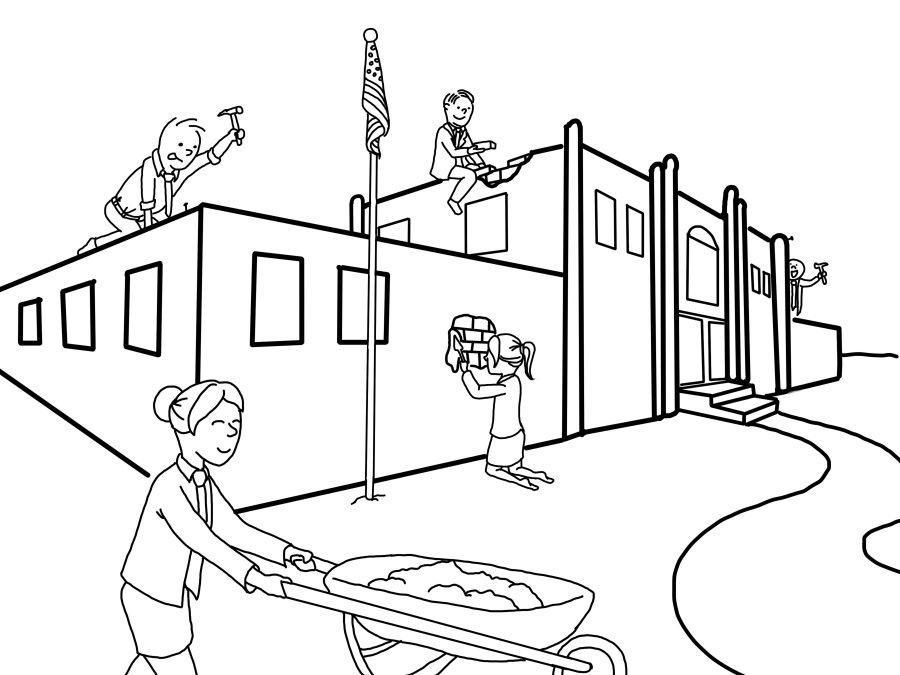On Saturday I had the privilege of delivering the keynote speech to the 2015 Honors Day Convocation of undergraduates at the University of Texas. The students inspired me to think deeply about how educated young people can improve our society. Here are some of the words I delivered to the audience of 4,000 undergraduates, families and faculty:
We are a society of great power and wealth, but we cannot continue to go on as we are today. We are destroying too much as we overspend, overmilitarize and overconsume. The last 25 years have witnessed a remarkable burst in the creativity of our technology and our science, but our political and social thought has not kept pace. As human beings we have stagnated, even fallen behind. Just look at how old and out-of-date our ideas and our policies are. Just listen to how formulaic, useless and offensive our public rhetoric has become. Our technical ingenuity is not matched by the necessary humanistic creativity to move our society forward, and improve our lives — all of our lives.
As our most talented young citizens enter diverse professions, you have a collective choice: Will you maximize the value you can provide for yourself and your family, or will you find a way to do well but also do good? Will you define your success by your paycheck or by the larger purpose of your pursuits? These are not either-or propositions — you can live comfortably and help others — but they pose real choices about priorities. How will you turn your talents and opportunities into human value for others?
These are fundamentally questions of character. This is a word we do not talk enough about. In the past it was sometimes a code word to exclude people who did not come from the “correct” backgrounds. That misuse of the word should not lead us to forget its deeper and more inclusive meaning.
Character is the quality of seeing beyond the immediate to a deeper meaning in human interactions. It is a historical sensibility about past inheritances, present possibilities and future responsibilities. A person of character does not live for herself or for the present, but for a broader set of human purposes. A person of character derives wisdom and judgment from extensive reflection on what really matters, and what really endures for humans as a whole.
Citizens of character avoid simple solutions and slogans; they take on the more difficult and uncertain challenges that determine larger outcomes. They lead by example, they acknowledge their failures and they always strive to make themselves and others better. Citizens of character succeed for reasons beyond their brains and brawn. They display three fundamental qualities that draw others to them.
First, citizens of character display decency toward others. They do not make less talented and privileged people feel inadequate or inferior. They do not take all they can when they know others have so much less. Decency requires humility — a recognition of self-imposed limits on greed, even if society does not always enforce those limits. Decency stands for fair play, not profit maximization. In promoting justice rather than victory, acts of decency replace competitions for accumulation with cooperation to share the bounty.
Second, to gain character one must accept sacrifice. Nothing comes for free, and anything worth having requires giving something else up. Citizens of character do not market their talents for money alone — that is too easy. Citizens of character use their talents to achieve higher goals — that is the hard road that produces positive changes. Sacrifice builds character because it makes citizens strive for what they really value, not the goodies offered to them instead.
Third, and perhaps most important, character requires hope. It is too easy to look at our troubled world in a learned way and lament that things “cannot change.” Resigned to the present, one can feel free to profit from the problems of our day, as many of us do. Character comes from the courage to imagine a better world and believe in it. Character expresses itself not with easy promises and sound bites but real thought about how the world could be better and how we can start to get there. Great leaders of character inspire people to pursue big, realistic dreams.
I have hope because I see the decency in our talented students every day. I have hope because I know our students are ready to sacrifice for big dreams, if only we will encourage them to do so. Too many older and tired citizens are telling our students to think small, focus on their families and get rich. There is nothing wrong with being rich, but wealth does not create character or human fulfillment.
American society was built by great men and women of character, and it is time we recognized that we need another generation of character to take over the reins from those who have displayed a striking absence of character in recent years. Societies renew themselves when talent is combined with decency, sacrifice and hope. We are ready for that long overdue renewal. I see it coming the eyes of my students and the fears of their elders. Character beats fear every time.
Suri is a professor in the LBJ School of Public Affairs and the Department of History. Follow Suri on Twitter @JeremiSuri.





















